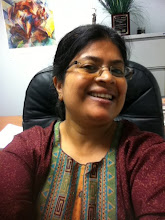 Here is an inspiring story of a young engineering student from University of Dayton whose summer internship in rural Nicaragua eventually led to the founding of a nonprofit organization with the goal of harnessing solar power to improve healthcare in that community, and possibly, in time, in many others around the world.
Here is an inspiring story of a young engineering student from University of Dayton whose summer internship in rural Nicaragua eventually led to the founding of a nonprofit organization with the goal of harnessing solar power to improve healthcare in that community, and possibly, in time, in many others around the world.
It is common knowledge that one of the banes of poor rural clinics anywhere in the world is the unavailability of sterile dressing and surgical instruments. Unlike the large metropolises in affluent countries where the emphasis is on single-use disposable instruments to the extent possible, many poor clinics have only one or two sets of scissors, scalpels and the like. If one operation of an infected carbuncle has just concluded and you walk with a bleeding knee with a piece of bone sticking out… well, you’re just out of luck. The careful doctor or nurse or often a less formally trained healthcare worker will just wash off the instruments with water (which may not be clean to start with) and soap (if available), dab some disinfectant if you’re really lucky, and then off you go under the knife! Autoclaving, defined as the technique for sterilization of clinical equipment and supplies by subjecting them to high-pressure steam at 121° C or more for a certain period of time, is simply a luxury (in terms of power and/or fuel costs) that cannot be indulged in more than once a day or less. The result could be post-surgical infections, which are, in any case, more likely to fester when the patient is malnourished, has poor hygiene, and lives in a place that is hot and humid.
If the new nonprofit, Salud del Sol (Spanish for “Sun Health”), is successful in its mission, this situation may soon start changing, at least in one tiny corner of the world.
It all started with Lori Hanna, then a sophomore in Mechanical Engineering, traveling to Nicaragua in the summer of 2006 for an internship program through her school. There, she was to work with a community group called Las Mujeres Solares (Spanish for “The Solar Women”). This group was started with help from Grupo Fenix, a local organization dedicated to researching, developing and applying appropriate, renewable-energy technologies in Nicaragua. Grupo Fenix taught these women how to build and use the solar cookers. The solar cookers made a big impact in the community, because they save fuel (firewood), are a safe place to store food between meals, and can be used to bring in extra income.
Lori, just like any other intern in her place, was duly impressed by how this simple technology had changed the lives of these rural women, and also by the dedication and energy of these “solar women”. What was unusual, however, was that she did not stop there. Further enquiry revealed a project that involved redesigning these solar cookers to serve as autoclaves to sterilize clinical instruments, which had been initiated and later abandoned as that particular funding source had dried up.
Lori took this idea and ran with it. She decided to do her honors thesis on this redesign, and later involved other classmates from different disciplines, until in 2008 she and her friends won an award for their business plan for a nonprofit based on this technology, and the new nonprofit, Salud del Sol, was born. The mission of this new nonprofit is to provide communities in Nicaragua with the opportunity to improve their own healthcare systems by building and selling solar autoclaves, thereby also creating monetary incentives for members of these communities. The founders of Salud del Sol have visions of expanding this project all over Nicaragua, and possibly to other countries. Thankfully, the sun is one resource that is generally abundantly available in most resource-poor places of the world. Interestingly also, the Salud del Sol website provides free access to a detailed design of the solar autoclave, so it is readily available to any nonprofit or social business which wants to utilize it. The website also lists current major challenges in solar autoclave design, and solicits thoughts and ideas from readers to improve them.





Hi,
ReplyDeleteThe sterilization of instruments in rural health clinics in less developed countries is an increasing problem as chemical methods. Most medical and surgical devices used in healthcare facilities are made of materials that are heat stable and therefore undergo heat, primarily steam, sterilization. Thanks a lot...
Thermometer Strips
Succeed! It could be one of the most useful blogs we have ever come across on the subject. Excellent info! I’m also an expert in this topic so I can understand your effort very well. Thanks for the huge help. Valley Imaging Partners David Topper
ReplyDeleteAwesome article! I want people to know just how good this information is in your article. It’s interesting, compelling content. Your views are much like my own concerning this subject. vidalista 80mg
ReplyDelete